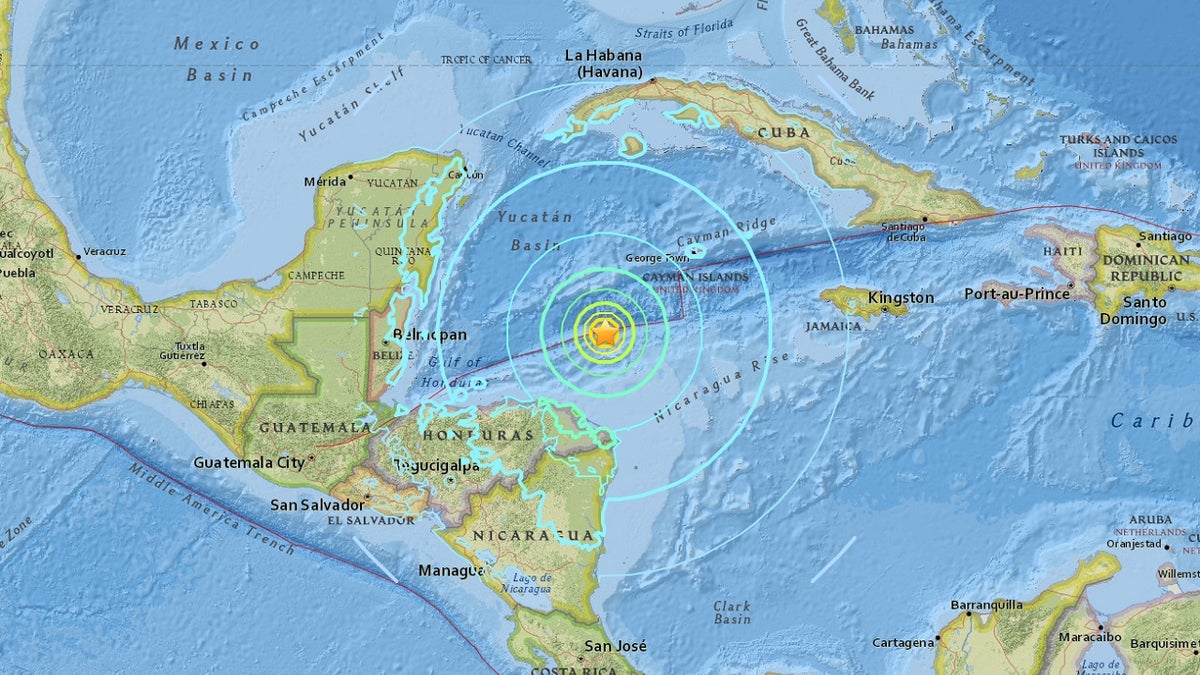
A magnitude 7.6 earthquake struck in the Caribbean Sea between the coast of Honduras and the Cayman Islands on Tuesday night. (U.S. Geological Survey)
A 7.6 magnitude earthquake struck the Caribbean region between the coast of Honduras and the Cayman Islands on Tuesday night.
There were no early reports of damage on land following one of the strongest quakes to hit the region in modern times.
Honduran President Juan Orlando Hernandez said via Twitter in Spanish that Honduras had activated its emergency system and asked people to remain calm.
In the Cayman Islands, Sgt. Dave McKay with Royal Cayman Islands Police said that hazard management officials had not issued a tsunami alert, but authorities were monitoring the situation.
Tsunami warning centers said no tsunami waves had been confirmed but stressed that people in Puerto Rico, other Caribbean islands and the coast of Central America should be alert to the danger of possible tsunamis.
No tsunami was expected along the U.S. Gulf and East Coasts, AccuWeather.com reported.
The U.S. Geological Survey said the temblor struck in the sea about 125 miles north-northeast of Barra Patuca, Honduras, close to 200 miles southwest of George Town, Cayman Islands, and occurred about 6 miles below the surface.
Nonetheless, hazardous tsunami waves were still possible within 621 miles of the quake's epicenter, AccuWeather.com reported, citing the National Tsunami Warning Center (NTWC).
In fact, tsunami waves of up to 1 foot were possible for Puerto Rico and the U.S. Virgin Islands.
People near the coast were advised to immediately seek higher ground, the weather network reported.
Tuesday's earthquake came almost exactly eight years after a 7.0 magnitude quake that devastated Haiti on Jan. 12, 2010, the report said.
The Associated Press contributed to this report.
